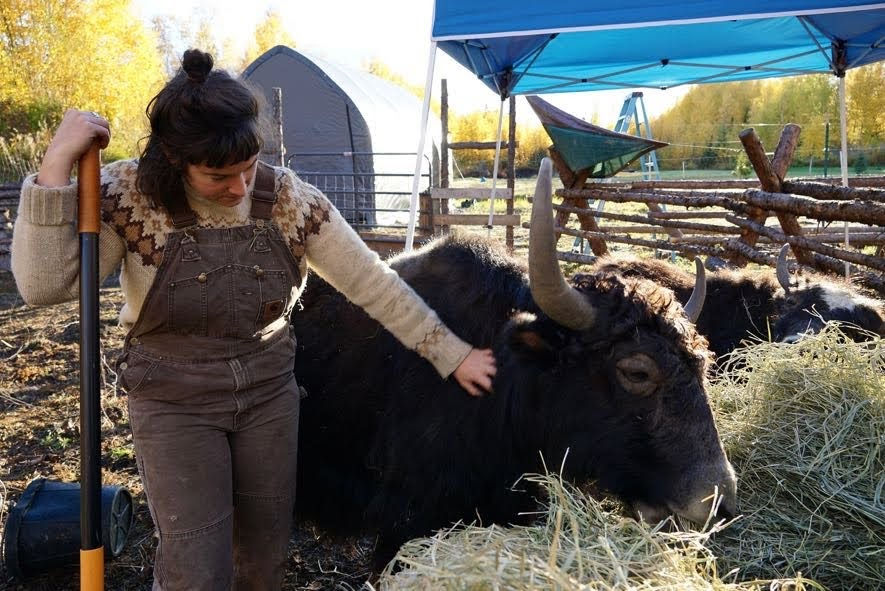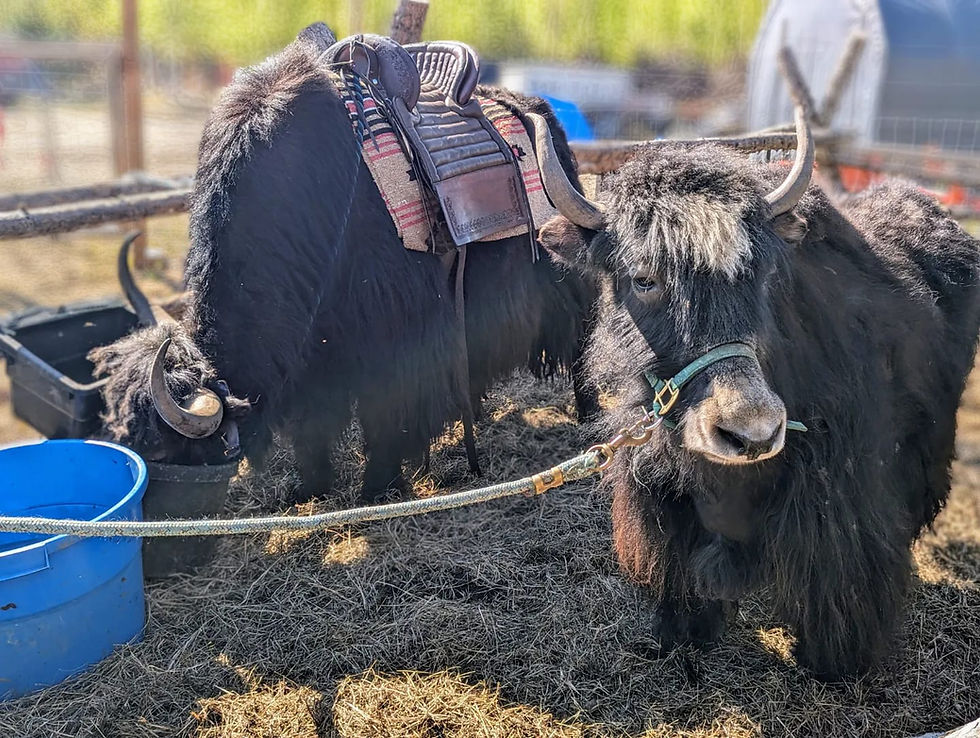

Interior Alaska Yak Farming
If I have learned anything from starting from scratch to raise yaks, there is no "right" way but there are certainly techniques to set yaks and yourself up for success. There are many variables to starting a yak farm in Interior Alaska; being willing to research and adapt various methods, techniques, and practices is essential to respond to all situations that could arise. I determined what works best for us by reading books, articles, visiting farms, talking with yak owners, reading forums, and trial and error. We are still learning and adapting! I hope some of the information below will provide people with a starting point to know what to ask when interested in yak farming. If you are thinking of getting yaks, I suggest you talk to other yak farmers and a local large animal/livestock vet.




Fencing and Living Space
Fencing challenges in Interior, Alaska include accessibility of materials, expense, and freeze-thaw uplift of posts. We adjust our fencing strategies to ensure a safe and spacious living area for our animals. Our fences are 6-ft tall (4-ft of high tensile graduated woven wire fence and two strands of non-barbed wire up to 6-ft). The fencing is stretched tight over railroad tie corners, T-posts, and spruce logs. We have segmented areas inside their 1/4-acre pen that include a saw and buck corral made of logs, a 10-ft x 10-ft open barn, and gates that open up to larger fenced field areas.

Food
We feed our yaks brome hay. Wide green grass varieties are ideal for yaks, but do not necessarily need "horse-quality" hay. I feed mornings and evenings, so they get used to me providing their food. We also use brome-barley pellets from Alaska Feed for training purposes but do not regularly supplement the hay with pellets.
Forage
Yaks do very well foraging for leafy vegetation. They are not limited to strictly eating grass, though they like wide leaf sweet grasses. In Fairbanks, they eat fireweed, clover, chamomile, spruce tips, alder leaves, aspen leaves, and willow which is a great source of protein.
Minerals
Yaks require minerals with selenium and copper. I have read that many farms use Redmond Bison 90 Mineral.
I use Sweetlix 16:8 Meat Maker Goat Supplement because it is available for me locally, and the yaks seem to be doing well with it. I add it to their feed when I use pellets for training, sprinkle small amounts on their hay occasionally, but have the loose minerals in buckets that are accessible to them at all times.
Water
Because of their adaptations for high altitudes and cold climates, yaks have the potential to be able to meet their hydration needs by metabolizing snow. Interior, Alaska snow is very dry, so in the winter I supplement their water intake two times a day. Sometimes they drink the water and other times they do not. In the summer, they need access to fresh water at all times.


